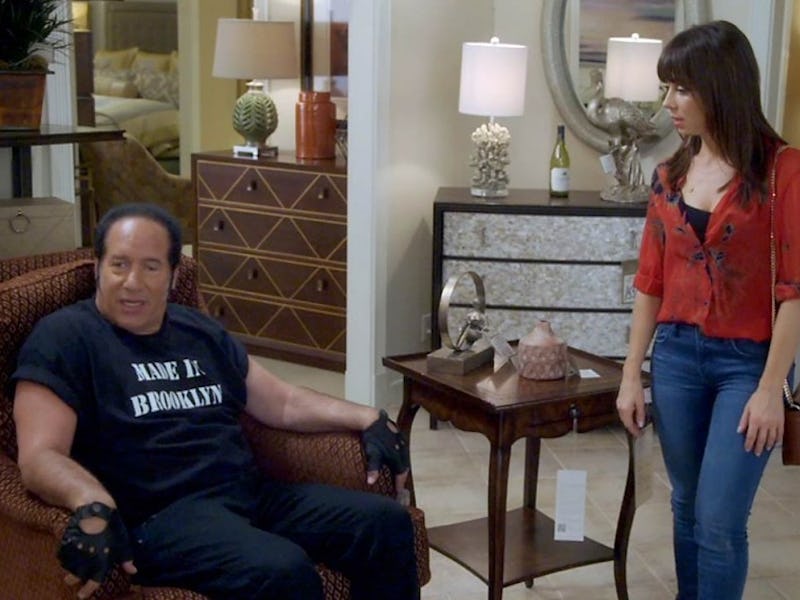Andrew Dice Clay's Autobiographical 'Dice' is a Unexpected Success for Showtime
The six-part miniseries, which premieres on April 10th, is no simple 'Louie' knockoff.

When I call Andrew Dice Clay’s new Showtime miniseries Dice “surprising,” it’s not because I don’t think a show starring Andrew Dice Clay can be good. In fact, I’m a proponent of his recent acting work. I use the word because I’m skeptical that any show clearly inspired by, or made possible by of the success of Louie can be good. From Maron to Rob Schneider’s Real Rob, the feeding frenzy of comedians pitching fictionalized elements of their real life in that past few years has been, generally, a largely unrewarding strain in television. But I was right to be hopeful about the Diceman’s abilities in his middle age; somehow, Showtime’s Dice, which premieres on April 10th, proves to be an enjoyably absurd and unpredictable ride.
If you’ve been categorical Dice-hater since his heyday, you’ll find a somewhat penitent version of the man here; at least, he’s eager to draw a distinction between his comedic persona, and his true self. What you really get in Dice is a combination of the two: a neurotic, bumbling protagonist who falls somewhere between the sensibilities of Larry David, Homer Simpson and Archie Bunker. This Dice is both egotistical and self-conscious, hard-hearted and doting, a weird outsider and a man-about-town (Vegas, of course). He spends his day doing standup in “sushi joints,” free Vegas tourism commercials for exposure, and gambling for income. He’s bristly with the manager at his favorite casino for charging him (“The DICE) $5 ATM fees, but lapdog-level committed to his girlfriend Carmen (Natasha Leggero as a voice of reason), and devoted to his sidekick “Milkshake” (Kevin Corrigan at his weirdest), who enjoys drinking gravy out of styrofoam cups and coaching Dice in blackjack.
The dynamic approaches Curb much more closely than Louie; this is not a show about being a loner, but about a man who has created a weird, hilariously unchanging universe around himself, studded with misfits and more level-headed acquaintances who think he’s a psychopath. The situations of the episodes are just as weird: Adrian Brody guest-stars, studying Dice’s mannerisms for an upcoming one-act Broadway play about “masculinity,” and then steals his identity. Criss Angel mind freak”s Dice into a trippy Big Lebowski-esque hallucination during one of his magic shows, to repay Dice for doing a scratch-and-run job on the door of his Lambo. Dice frantically scours an exhibition of plaster casts of celebrity penises for a 1989 mold of his own, because, as he says to Leggero: “Wouldn’t it be nice to know that certain things in life don’t change?”
Andrew Dice Clay and Kevin Corrigan in 'Dice'
Moments like this are about as sentimental as Dice’s show, inherently about being the multivalent experience of being a washed-up ex-superstar, gets. It realizes that, in order to justify its existence, it needs to focus mostly on really trying to be funny, and on weird Wayne Newton cameos. Indeed, as Dice opines, few things in life stay the same; luckily, something that has shifted is Andrew Dice Clay. He’s very much his same old self in mode of discourse and aesthetic, but he’s very willing to make fun of his shtick at every relevant turn. The types of people (from women to queer couples) he marginalized in the controversial, often noxious act of his late ‘80s/early ‘90s heyday fire back at him with more vitriol; we can doubtless thank the smart writing of Scot Armstrong (Old School, Road Trip) for this working so well.
In this way and so many others, Dice is, conceptually, a tough bargain to strike. But somehow, against all odds, the modest, unhinged series has, largely, come through for us in the goofiest way possible.